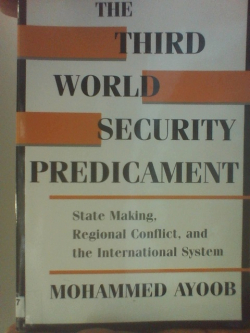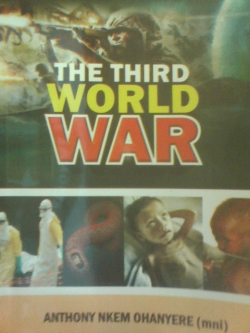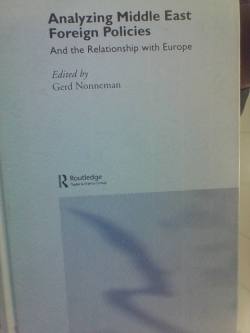From Third World to First: The Singapore Story - 1965-2000

Buy online ($)
Type
Book
Authors
ISBN 10
0060197765
ISBN 13
9780060197766
Category
900-GEOGRAPHY AND HISTORY
[ Browse Items ]
Publication Year
2000
Publisher
Pages
729
Subject
Singapore -- Economic conditions; Singapore -- Social conditions; Singapore -- History;
Abstract
Few gave tiny Singapore much chance of survival when it was granted independence in 1965. How is it, then, that today the former British colonial trading post is a thriving Asian metropolis with not only the world's number one airline, best airport, and busiest port of trade, but also the world's fourth–highest per capita real income?
The story of that transformation is told here by Singapore's charismatic, controversial founding father, Lee Kuan Yew. Rising from a legacy of divisive colonialism, the devastation of the Second World War, and general poverty and disorder following the withdrawal of foreign forces, Singapore now is hailed as a city of the future. This miraculous history is dramatically recounted by the man who not only lived through it all but who fearlessly forged ahead and brought about most of these changes.
Delving deep into his own meticulous notes, as well as previously unpublished government papers and official records, Lee details the extraordinary efforts it took for an island city–state in Southeast Asia to survive at that time.
Lee explains how he and his cabinet colleagues finished off the communist threat to the fledgling state's security and began the arduous process of nation building: forging basic infrastructural roads through a land that still consisted primarily of swamps, creating an army from a hitherto racially and ideologically divided population, stamping out the last vestiges of colonial–era corruption, providing mass public housing, and establishing a national airline and airport.
In this illuminating account, Lee writes frankly about his trenchant approach to political opponents and his often unorthodox views on human rights, democracy, and inherited intelligence, aiming always "to be correct, not politically correct." Nothing in Singapore escaped his watchful eye: whether choosing shrubs for the greening of the country, restoring the romance of the historic Raffles Hotel, or openly, unabashedly persuading young men to marry women as well educated as themselves. Today's safe, tidy Singapore bears Lee's unmistakable stamp, for which he is unapologetic: "If this is a nanny state, I am proud to have fostered one."
Though Lee's domestic canvas in Singapore was small, his vigor and talent assured him a larger place in world affairs. With inimitable style, he brings history to life with cogent analyses of some of the greatest strategic issues of recent times and reveals how, over the years, he navigated the shifting tides of relations among America, China, and Taiwan, acting as confidant, sounding board, and messenger for them. He also includes candid, sometimes acerbic pen portraits of his political peers, including the indomitable Margaret Thatcher and Ronald Reagan, the poetry–spouting Jiang Zemin, and ideologues George Bush and Deng Xiaoping.
Lee also lifts the veil on his family life and writes tenderly of his wife and stalwart partner, Kwa Geok Choo, and of their pride in their three children –– particularly the eldest son, Hsien Loong, who is now Singapore's deputy prime minister.
For more than three decades, Lee Kuan Yew has been praised and vilified in equal measure, and he has established himself as a force impossible to ignore in Asian and international politics. From Third World to First offers readers a compelling glimpse into this visionary's heart, soul, and mind.
The story of that transformation is told here by Singapore's charismatic, controversial founding father, Lee Kuan Yew. Rising from a legacy of divisive colonialism, the devastation of the Second World War, and general poverty and disorder following the withdrawal of foreign forces, Singapore now is hailed as a city of the future. This miraculous history is dramatically recounted by the man who not only lived through it all but who fearlessly forged ahead and brought about most of these changes.
Delving deep into his own meticulous notes, as well as previously unpublished government papers and official records, Lee details the extraordinary efforts it took for an island city–state in Southeast Asia to survive at that time.
Lee explains how he and his cabinet colleagues finished off the communist threat to the fledgling state's security and began the arduous process of nation building: forging basic infrastructural roads through a land that still consisted primarily of swamps, creating an army from a hitherto racially and ideologically divided population, stamping out the last vestiges of colonial–era corruption, providing mass public housing, and establishing a national airline and airport.
In this illuminating account, Lee writes frankly about his trenchant approach to political opponents and his often unorthodox views on human rights, democracy, and inherited intelligence, aiming always "to be correct, not politically correct." Nothing in Singapore escaped his watchful eye: whether choosing shrubs for the greening of the country, restoring the romance of the historic Raffles Hotel, or openly, unabashedly persuading young men to marry women as well educated as themselves. Today's safe, tidy Singapore bears Lee's unmistakable stamp, for which he is unapologetic: "If this is a nanny state, I am proud to have fostered one."
Though Lee's domestic canvas in Singapore was small, his vigor and talent assured him a larger place in world affairs. With inimitable style, he brings history to life with cogent analyses of some of the greatest strategic issues of recent times and reveals how, over the years, he navigated the shifting tides of relations among America, China, and Taiwan, acting as confidant, sounding board, and messenger for them. He also includes candid, sometimes acerbic pen portraits of his political peers, including the indomitable Margaret Thatcher and Ronald Reagan, the poetry–spouting Jiang Zemin, and ideologues George Bush and Deng Xiaoping.
Lee also lifts the veil on his family life and writes tenderly of his wife and stalwart partner, Kwa Geok Choo, and of their pride in their three children –– particularly the eldest son, Hsien Loong, who is now Singapore's deputy prime minister.
For more than three decades, Lee Kuan Yew has been praised and vilified in equal measure, and he has established himself as a force impossible to ignore in Asian and international politics. From Third World to First offers readers a compelling glimpse into this visionary's heart, soul, and mind.
Description
Editorial Reviews
Amazon.com Review
In this memoir, the man most responsible for Singapore's astonishing transformation from colonial backwater to economic powerhouse describes how he did it over the last four decades. It's a dramatic story, and Lee Kuan Yew has much to brag about. To take a single example: Singapore had a per-capita GDP of just $400 when he became prime minister in 1959. When he left office in 1990, it was $12,200 and rising. (At the time of this book's writing, it was $22,000.) Much of this was accomplished through a unique mix of economic freedom and social control. Lee encouraged entrepreneurship, but also cracked down on liberties that most people in the West take for granted--chewing gum, for instance. It's banned in Singapore because of "the problems caused by spent chewing gum inserted into keyholes and mailboxes and on elevator buttons." If American politicians were to propose such a thing, they'd undoubtedly be run out of office. Lee, however, defends this and similar moves, such as strong antismoking laws and antispitting campaigns: "We would have been a grosser, ruder, cruder society had we not made these efforts to persuade people to change their ways.... It has made Singapore a more pleasant place to live in. If this is a 'nanny state,' I am proud to have fostered one."
Lee also describes one of his most controversial proposals: tax breaks and schooling incentives to encourage educated men and women to marry each other and have children. "Our best women were not reproducing themselves because men who were their educational equals did not want to marry them.... This lopsided marriage and procreation pattern could not be allowed to remain unmentioned and unchecked," writes Lee. Most of the book, however, is a chronicle of how Lee helped create so much material prosperity. Anticommunism is a strong theme throughout, and Lee comments broadly on international politics. He is cautiously friendly toward the United States, chastising it for a "dogmatic and evangelical" foreign policy that scolds other countries for human-rights violations, except when they interfere with American interests, "as in the oil-rich Arabian peninsula." Even so, he writes, "the United States is still the most benign of all the great powers.... [and] all noncommunist countries in East Asia prefer America to be the dominant weight in the power balance of the region." From Third World to First is not the most gripping book imaginable, but it is a vital document about a fascinating place in a time of profound transition. --John J. Miller
Amazon.com Review
In this memoir, the man most responsible for Singapore's astonishing transformation from colonial backwater to economic powerhouse describes how he did it over the last four decades. It's a dramatic story, and Lee Kuan Yew has much to brag about. To take a single example: Singapore had a per-capita GDP of just $400 when he became prime minister in 1959. When he left office in 1990, it was $12,200 and rising. (At the time of this book's writing, it was $22,000.) Much of this was accomplished through a unique mix of economic freedom and social control. Lee encouraged entrepreneurship, but also cracked down on liberties that most people in the West take for granted--chewing gum, for instance. It's banned in Singapore because of "the problems caused by spent chewing gum inserted into keyholes and mailboxes and on elevator buttons." If American politicians were to propose such a thing, they'd undoubtedly be run out of office. Lee, however, defends this and similar moves, such as strong antismoking laws and antispitting campaigns: "We would have been a grosser, ruder, cruder society had we not made these efforts to persuade people to change their ways.... It has made Singapore a more pleasant place to live in. If this is a 'nanny state,' I am proud to have fostered one."
Lee also describes one of his most controversial proposals: tax breaks and schooling incentives to encourage educated men and women to marry each other and have children. "Our best women were not reproducing themselves because men who were their educational equals did not want to marry them.... This lopsided marriage and procreation pattern could not be allowed to remain unmentioned and unchecked," writes Lee. Most of the book, however, is a chronicle of how Lee helped create so much material prosperity. Anticommunism is a strong theme throughout, and Lee comments broadly on international politics. He is cautiously friendly toward the United States, chastising it for a "dogmatic and evangelical" foreign policy that scolds other countries for human-rights violations, except when they interfere with American interests, "as in the oil-rich Arabian peninsula." Even so, he writes, "the United States is still the most benign of all the great powers.... [and] all noncommunist countries in East Asia prefer America to be the dominant weight in the power balance of the region." From Third World to First is not the most gripping book imaginable, but it is a vital document about a fascinating place in a time of profound transition. --John J. Miller
Biblio Notes
CONTENT
- Part 1 Getting the Basics Right ............................ P. 1
1. Going it Alone .................................................. P. 3
2. Building an Army from Scratch ........................... P. 11
3. Britain Pulls Our ............................................... P. 31
4. Surviving Without a Hinterland ........................... p. 49
5. Creating a Financial Center ................................. p.71
6. Winning Over the Unions .................................... P. 83
7.A Fair Not Welfare, Society .................................. p. 95
8. The Communists Self- Destruct ........................... p. 109
9. Scraddling the Middle Ground .............................. P.121
10. Nurturing and Attracting Talent .......................... P. 135
11. Many Tongues, one Language ............................ P. 145
12. Keeping the Government Clean .......................... P. 157
13. Greening Singapore .......................................... P. 173
14. Managing the Media .......................................... P. 185
15. Conductor of an Orchestra ................................. P.199
- Part II in Search of Space - Regional and International P. 225
16. Ups and Downs with Malaysia ................................. P. 227
17. Indonesia: From Foe to Friend .................................P.259
18. Building Ties with Thailand, the Philippines, and Brunei P. 293
19. Vietnam, Marianas, and Cambodia: coming to Terms with the Modern World
...................... P. 309
20. Asean - Unpromising Start, Promising Future ......... P.329
21. East Asia in Crisis 1997 - 1999................................ P. 343
22. Inside the Commonwealth Club ............................... P. 351
23. New Bonds with British ........................................... P. 373
24. Ties with Austria and New Zealand .......................... P.385
25. South Asian's Legends and Leaders .......................... P. 403
26. Following Britain into Europe ....................................P. 423
27. The soviet Union - An Empire Implodes .................... P. 439
28. America: The Anticommunist Anchorman .................. P.449
29. Strategic Accord with the United States ..................... P. 471
30. America's New Agenda ............................................ P. 487
31. Japan: Asia's First Miracle ........................................ P. 501
32. Lessons from Japan ................................................. P. 521
33. Korea: At the Crossroads ......................................... P. 531
34. Hong Kong's Transition............................................. P. 543
35. Taiwan: The other China .......................................... P. 559
36. China: The Dragon with a a Long Tail ......................... P.573
37. Deng Xiaoping's China .............................................. P. 595
38. China Beyond Beijing ................................................ P. 617
39. Tienanmen .............................................................. P.625
40. China: To be Rich is Glorious ..................................... P. 645
- Part III Winging Up ...................................................... P. 661
41. Passing the Baron ..................................................... P. 663
42. My Family ................................................................ P. 675
43. Epilogue .................................................................. P. 685
Index............................................................................. P. 693
- Part 1 Getting the Basics Right ............................ P. 1
1. Going it Alone .................................................. P. 3
2. Building an Army from Scratch ........................... P. 11
3. Britain Pulls Our ............................................... P. 31
4. Surviving Without a Hinterland ........................... p. 49
5. Creating a Financial Center ................................. p.71
6. Winning Over the Unions .................................... P. 83
7.A Fair Not Welfare, Society .................................. p. 95
8. The Communists Self- Destruct ........................... p. 109
9. Scraddling the Middle Ground .............................. P.121
10. Nurturing and Attracting Talent .......................... P. 135
11. Many Tongues, one Language ............................ P. 145
12. Keeping the Government Clean .......................... P. 157
13. Greening Singapore .......................................... P. 173
14. Managing the Media .......................................... P. 185
15. Conductor of an Orchestra ................................. P.199
- Part II in Search of Space - Regional and International P. 225
16. Ups and Downs with Malaysia ................................. P. 227
17. Indonesia: From Foe to Friend .................................P.259
18. Building Ties with Thailand, the Philippines, and Brunei P. 293
19. Vietnam, Marianas, and Cambodia: coming to Terms with the Modern World
...................... P. 309
20. Asean - Unpromising Start, Promising Future ......... P.329
21. East Asia in Crisis 1997 - 1999................................ P. 343
22. Inside the Commonwealth Club ............................... P. 351
23. New Bonds with British ........................................... P. 373
24. Ties with Austria and New Zealand .......................... P.385
25. South Asian's Legends and Leaders .......................... P. 403
26. Following Britain into Europe ....................................P. 423
27. The soviet Union - An Empire Implodes .................... P. 439
28. America: The Anticommunist Anchorman .................. P.449
29. Strategic Accord with the United States ..................... P. 471
30. America's New Agenda ............................................ P. 487
31. Japan: Asia's First Miracle ........................................ P. 501
32. Lessons from Japan ................................................. P. 521
33. Korea: At the Crossroads ......................................... P. 531
34. Hong Kong's Transition............................................. P. 543
35. Taiwan: The other China .......................................... P. 559
36. China: The Dragon with a a Long Tail ......................... P.573
37. Deng Xiaoping's China .............................................. P. 595
38. China Beyond Beijing ................................................ P. 617
39. Tienanmen .............................................................. P.625
40. China: To be Rich is Glorious ..................................... P. 645
- Part III Winging Up ...................................................... P. 661
41. Passing the Baron ..................................................... P. 663
42. My Family ................................................................ P. 675
43. Epilogue .................................................................. P. 685
Index............................................................................. P. 693
Number of Copies
1
| Library | Accession No | Call No | Copy No | Edition | Location | Availability |
|---|---|---|---|---|---|---|
| Main | 27 |
959.5704 YEW |
1 | Yes |




